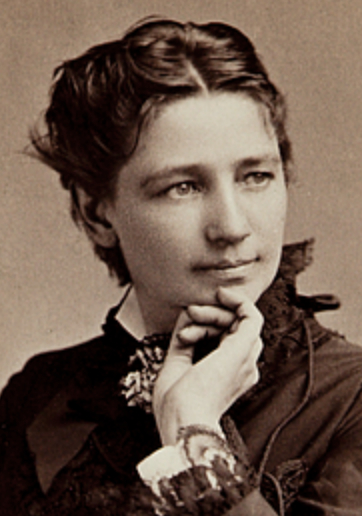On this date in 1838, Victoria Woodhull was born in Ohio, the sixth of 10 children in an itinerant family. She and her sister Tennessee Claflin first became notorious as “clairvoyants” in a family money-making scheme. She married at 14 or 15 to an alcoholic and gave birth to the first of two children in her mid-teens, an experience that turned her into a challenger of the sexual double standard. Shaking off her marriage and her old life, she and her sister took on Wall Street. Known as “The Bewitching Brokers,” the sisters became the first women to open a bank, with the backing of admirer and railroad tycoon Cornelius Vanderbilt.
At the national suffrage association in 1869, Victoria took feminists by storm with her impassioned argument that the 14th and 15th amendments already enfranchised women. She became the second woman in the nation, following Elizabeth Cady Stanton, to address the House Judiciary Committee. In 1872, Woodhull became the first woman to run for president, with Frederick Douglass as her vice president. The Woodhull & Claflin’s Weekly, a lively, muckraking, feminist newspaper that she and her sister published for six years, specialized in iconoclasm, publishing the first English translation of Karl Marx’s Communist Manifesto.
In 1872 Woodhull exposed a “black collar crime,” reporting the common knowledge of the extramarital affair of the Rev. Henry Ward Beecher with Elizabeth Tilton, the wife of his friend Theodore Tilton. Beecher, the brother of Harriet Beecher Stowe and the most influential preacher in the land, got the sisters arrested under the Comstock Act for publishing obscenity. They were jailed for several weeks and forced to post a huge bond. After a long ordeal they were found innocent of obscenity in 1873 and of libel the following year. Stanton stood by Woodhull and condemned the religious hypocrisy but most feminists dropped her.
The sisters moved to England and married well. Although living a quieter life, Woodhull remained a suffragist and published a humanitarian periodical. Although she was a fearless critic of religious hypocrisy, she appeared to be deistic and never fully outgrew her early spiritualism. (D. 1927)


